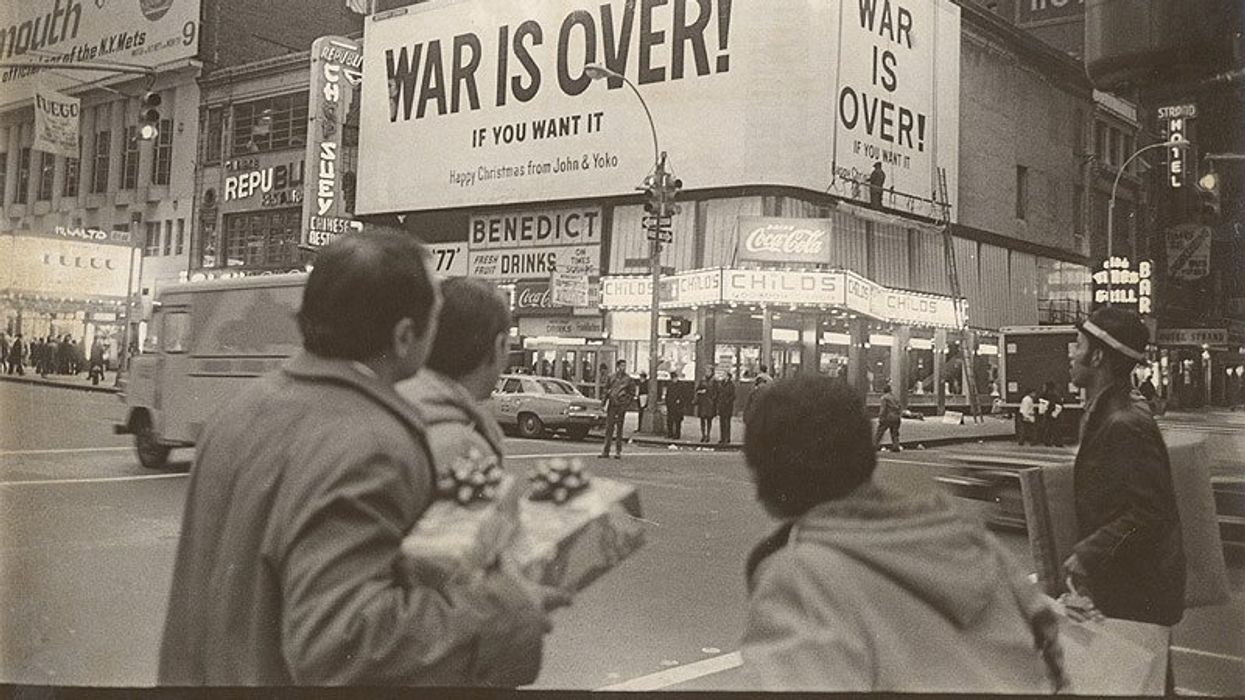David Nevins is co-publisher of The Fulcrum and co-founder and board chairman of the Bridge Alliance Education Fund.
“Happy Xmas (War Is Over),” a song by John Lennon released in 1971 that has become a Christmas classic, is more relevant today than ever.
As we approach 2024, a year that will certainly test our resolve as a nation and test our democracy, the opening verse of the song is a question all of us as Americans should ask:
So this is Christmas
And what have you done?
Another year over
And a new one just begun
The song’s message – calling for an end to fear and war, for hope and peace – is still applicable today, especially considering the ongoing conflicts in our nation and wars around the world. And the message of asking what each one of us can do rings as loudly today as ever. Hope is empty unless it is accompanied by helpful action.
The lyrics remind us that we should strive for a better world, where people of all races and backgrounds can live together in harmony. The song encourages us to look beyond our differences and work towards a common goal of peace and love.
As I listen again to “Happy Xmas,” I am reminded of John F. Kennedy’s inaugural address, delivered 10 years before Lennon’s song debuted. It has a similar message but with a call to action for us as a people:
“Ask not what your country can do for you, ask what you can do for your country.”
Yes, a call to action for Americans to contribute to their country and to work towards a better future for all. In 1961, when Kennedy delivered the speech, our nation was facing many challenges as it is today. He
inspired millions of people to take action and work towards a better future.
Yet for us to take action we must have hope. The two are inextricably woven together. Hope is a powerful emotion that often inspires us to achieve remarkable things. In 1963, just two years after Kennedy’s inaugural address, the Rev. Martin Luther King Jr. delivered his own famous speech of hope, asking those in attendance to never give up.
“I have a dream that one day every valley shall be exalted, every hill and mountain shall be made low, the rough places will be made plain, and the crooked places will be made straight, and the glory of the Lord shall be revealed, and all flesh shall see it together.”
There are thousands of organizations working towards a better future in communities and organizations around the world. In the corner of the world reached by The Fulcrum, we highlight election reforms and bridging work daily. What is missing are millions of Americans who take action in good faith, willing to set aside differences for a brighter future.
So today, as we approach Christmas day 2023, ask yourself, “What have you done”? And most importantly ask yourself, “What you can do for your country?”
Consider answering that question with a simple, but meaningful, first step:
Affirm your commitment to a safe, fair and peaceful 2024 election.
Take the words of John Lennon, JFK and MLK to heart, and take action and make a Pledge for Democracy.
Click here to read and sign the Pledge.
On this Christmas day, reflect on how you can help bring about the dream of a brighter future. Please join us in 2024 so the glory of our nation will be revealed.
Wishing you peace, goodwill and hope.
And of course enjoy John Lennon’s beautiful song:
HAPPY XMAS (WAR IS OVER). (Ultimate Mix, 2020) John & Yoko Plastic Ono Band + Harlem Community Choirwww.youtube.com




















